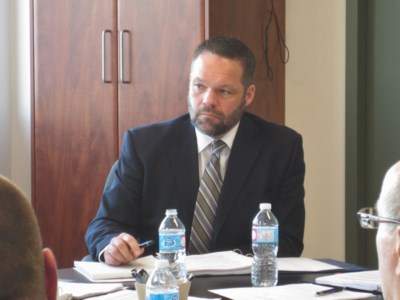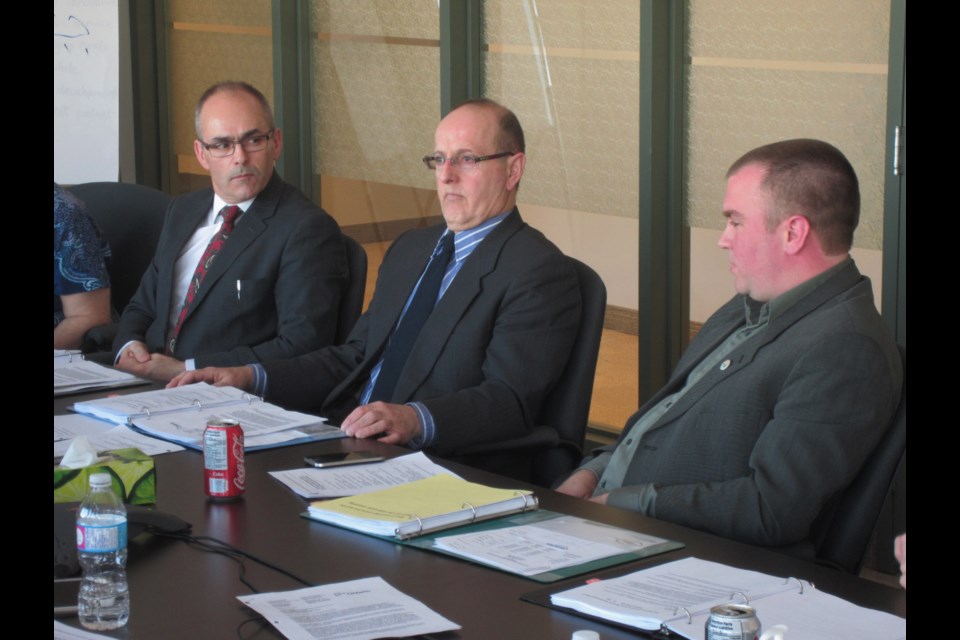It has been almost two years in the making, but after a 7-6 vote the Cochrane District Social Services Administration Board is heading to a new funding formula.
Communities around the district officially had until March 16 to vote on approving the most recent proposal put forth by Timmins Mayor Steve Black.
"The latest proposal was passed at the board level 10-4, and at the 'double majority' community level 7-6, so it did pass both of those thresholds and will be implemented," said Black.
Regional DSSABs provide social housing, child welfare, Ontario Works, and EMS(Emergency Medical Services).
The new formula will see every community in the region save money, except for three - Cochrane, Hearst, and Kapuskasing. Mayors from those communities have repeatedly said they cannot afford the huge spike in financial contribution.
Hardest hit is Kapuskasing who will now have to pay an additional $1.18 million.
Timmins will now be paying $1.14 million less. In the past, Black has stated that Kapuskasing wasn't pulling its weight.
Here is how the community vote went down:
| MUNICIPALITY | FOR | AGAINST |
| Black River - Matheson | X | |
| Cochrane | X | |
| Fauquier-Strickland | X | |
| Hearst | X | |
| Iroquois Falls * | ||
| Kapuskasing | X | |
| Mattice-Val Cote | X | |
| Moonbeam | X | |
| Opasatika | X | |
| Smooth Rock Falls | X | |
| Timmins | X | |
| Val Rita-Harty | X | |
| Unincorporated | X |
* Iroquois Falls did not have a town council meeting in time for the deadline
At Thursday's meeting, and at the previous DSSAB board meeting, the idea of bringing in a mediator to settle the dispute which has undoubtedly harmed regional unity.
"I think some of the discussion today about mediation wasn't so much about the existing funding models, its about how we go forward. In this whole process there's been two issues from a Timmins perspective. One was the dollars from communities versus the services received were not proportional. But there's the second issue, which is the province really needs to step up and look at how it provides social services and EMS services in the province of Ontario compared to how other provinces provide it," Black told TimminsToday after the meeting.
"I think if you review most of the country, you'll find that Ontario is kind of on its own in the way that we offer social services and EMS services, putting it on the backs of municipalities to pay for through their property taxes. I thank that is an issue, that now that the funding model issue is resolved, that we can unite as a group and take to the province as they're doing the DSSAB Act review. These are core essential services, especially on the EMS side, that don't have a place in the social services provision and should be covered and paid for fully by the province of Ontario," said Black.
With one hurdle cleared, there are several more ahead.
"We need to figure out how it will be implemented. So not only a start date, but also some of the finer details related to service changes in the area, things like that. Because the basis of the formula now is related to not only population, but service levels," said Brian Marks, Chief Administrative Officer and Director of the CDSSAB.
Marks said that although there have been some strong words thrown about by mayors throughout the region, Northeastern Ontario is not alone in its struggle to find a balance that is fair for everyone.
"It's not that much of a unique situation. The same conversation has been taking place since 1998 when DSSABs were first formed. The social services were downloaded onto the municipalities. Even cities who deliver their own services, may have the same concerns. For example, housing was never supposed to be funded off the municipal tax base. These are burdens that municipalities can't afford, given the fact that we struggle to fill potholes. Then you multiply that, in Northern Ontario, by the cost of living, the cost of hydro, the cost of fuel, our need is greater."
One thing all mayors in the region can agree on, is the fact that much of the problems stem from the provincial government.
 Chief Administrative Officer and Director of the Cochrane District Social Services Administration Board Brian Marks. Andrew Autio for TimminsToday
Chief Administrative Officer and Director of the Cochrane District Social Services Administration Board Brian Marks. Andrew Autio for TimminsToday "The message to the provincial ministries never changes. But unfortunately, because we are in Northern Ontario we're also easy to ignore sometimes. Our politicians that sit on our DSSAB board are second to none. They know the issues and they represent the people well, and they carry the message. It's just a question of whether or not we can get elected officials in Queens Park who will listen," said Marks.
Marks said that the next meeting will focus on getting administration some direction for application of the new funding formula, given the fact that until now the idea was hypothetical.
"What are the practical implications of this on a daily basis? We need to let the board know what they are so they can make the decisions based on our recommendations of the best way to implement this funding formula, so that we can continue to serve the people in the district properly," he said.
The latest move will leave Hearst, Cochrane, and especially Kapuskasing in a serious financial scramble.
"I appreciate that fully and I've expressed that to some of the mayors who have kept an open dialogue through this process. I appreciate it puts them in a tough position, a similar position that Timmins was in under the previous model. Again I think that's where the province needs to come in. The province has started a DSSAB act review, and first when they had discussions they said funding wasn't on the table. Then, all these issues kept coming up around the different DSSABs throughout the province, and now funding appears to possibly be on the table in that process. So I think its incumbent upon all DSSABs and all municipalities to really take a look and say 'why are we paying for these services?" said Black.
He said that the financial burdens downloaded from the province onto the region make an already unique situation even more challenging.
"This is an area where we can now try and patch up some of the tensions and wounds that have been caused going through the funding debate. Try to regain together as a region and approach the province and say 'You know what, this is actually an issue you need to resolve' and tackle how EMS is provided in the province of Ontario, and their responsibility as a provincial authority to provide the funding for that, rather than downloading on the backs of municipalities," said Black.


